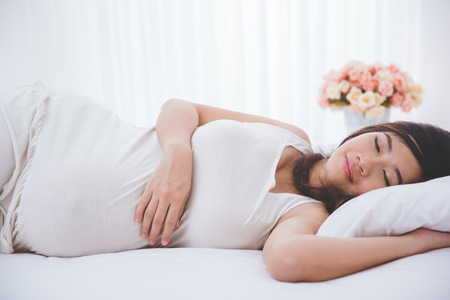How to Read the Right Pregnancy Signs?
In the midst of a busy and hectic life and wondering how to get pregnant? The answer is simple, you need to understand how your menstrual cycle works. In an average 28 day cycle, the highest chances of getting pregnant are between the 10th and 16th day, that is around the time your ovulation takes place and an egg is released from the ovary. An online ovulation calculator can help you know your exact fertile days. If the egg is fertilized by the sperm, conception occurs and you step onto the train of pregnancy and are headed into the journey called motherhood which will be soon confirmed with the help of the home pregnancy tests or the early signs of pregnancy.
If you notice any signs of pregnancy or miss your period then a home pregnancy test will help to confirm the pregnancy. It is nice and also important to understand pregnancy week by week. Once you have confirmed about your pregnancy, an online pregnancy calculator can give you a better picture of your baby’s weekly progress.
25 Early Signs of Pregnancy

Here are a few early signs of pregnancy that most women experience during their 9 month long journey. The intensity of pregnancy symptoms will vary in each pregnant woman as each pregnancy is unique in its own special way.
- Missed period
This is the first and earliest sign that you may be pregnant. A missed period is a sign that conception has taken place. Around 6 weeks pregnant, the pregnancy test will come positive. - Nausea
This is also commonly called as morning sickness of pregnancy. You may have nausea at any time of the day although it is more common in the morning on rising. Loss of appetite is also common. Having Ginger lemon tea first thing in the morning is quite effective in tackling nausea. - Vomiting
Vomiting or retching is quite common during early pregnancy. This symptom usually subsides by the third month of pregnancy. - Fatigue
Feeling extremely tired in the first few weeks of pregnancy is very common and often the first change you may notice. By the time you are 8 weeks pregnant or 9 weeks pregnant, the placenta is working hard to maintain the pregnancy. Your energy will bounce back once you reach your second trimester.
Food Cravings – Early Signs of Pregnancy - Food cravings and aversions
Sudden aversion or craving for chocolates or any other food item in the middle of the night are both very common. Pamper yourself but be careful to make healthy choices. - Breast changes
You will notice that the breasts begin to get heavier. The nipples and areola become darker and the nipples may be tender to touch. These changes are a result of pregnancy hormones. - Bleeding or spotting
When the fertilized egg implants into the wall of the uterus there could be slight bleeding which is called as implantation bleeding. This is normally seen around the time your period is expected. It is mild and lasts only for day or two. In case the bleeding is more, contact your doctor as you could be heading towards a miscarriage. - Abdominal cramps
As the egg implants into the uterine wall, mild cramps are felt in the lower abdomen. The cramps could also be due to gas formation. - Mood swings
Mood swings with increased sensitivity and tearfulness are quite common in pregnancy. The hormones in the body are responsible for the same. - Bloating
The hormone progesterone leads to a slowdown in the digestive process causing gas formation. - Excessive gas formation
The food moves slowly through the intestines giving more time for the bacteria in the gut to act, thereby leading to excess gas formation. - Frequent Urination
Increased blood volume leads to increase in the renal blood flow and thereby more urine output. - Skin changes
Due to the hormonal changes in pregnancy, you may notice a break out of acne or extremely oily skin.
Acidity – Signs of Pregnancy - Acidity and heartburn
Beginning around 10 weeks pregnant and lasting till the end of your pregnancy, this symptom is mainly due to the relaxation of smooth muscles. Also as the baby grows, the stomach is pushed upwards causing regurgitation of the acid which gives heartburn. The condition deepens in the third trimester around, 35 weeks pregnant or complete 40 weeks. The best way to handle it is taking small portions of meals at frequent intervals rather than one large meal. - Constipation
Constipation is an early symptom of pregnancy which occurs due to the hormone progesterone which tends to slow down the process of digestion. - Metallic taste in mouth
You may notice a strange metallic taste in your mouth these days. It is not the food you eat, but your pregnant body playing with you. - Exaggerated sense of smell
This symptom is experienced by lot of pregnant women. You may find yourself reacting strongly to certain smells due to the hormonal changes occurring in your body. - Tiredness
Fatigue or constant feeling of tiredness is very common in the first few weeks of pregnancy. It is because your body is working extra hard in forming the placenta. You will get back your energy as you approach the second trimester that is around 12-13 weeks pregnant. The condition is more intense in teenage pregnancy. - Bleeding gums
During pregnancy, there is more accumulation of plaque between the teeth thus leading to occasional bleeding from teeth and gums. It is normal and there is nothing to be worried about. - Excessive salivation
Excessive salivation occurs as part of the body’s reaction during nausea and vomiting in the early weeks of pregnancy.
Sleepiness – Early Sign of Pregnancy - Sleepiness
It is very common for you to feel more drowsy and tired in those early weeks. The best advice at this time is to follow the signals given by your body and take some rest. - Strange Dreams
Vivid dreams are a very common happening all throughout pregnancy. Many pregnant women find themselves dreaming away at this time. - Backache
During pregnancy, the hormone relaxin causes loosening up of all the joints of the body making you prone to get backaches. The changing center of gravity also causes backache. - Stuffy nose
Flu like symptoms are common during the early weeks of pregnancy due to hormonal changes. - Leg cramps
Metabolic imbalances can give rise to cramps in the legs. They can be tackled effectively by taking foods rich in potassium like bananas and coconut water.






